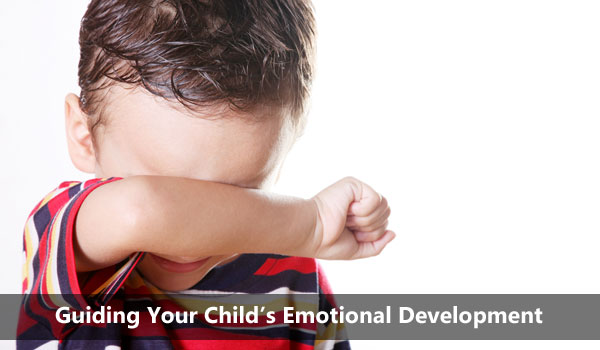Guiding your child into an emotionally healthy future is the best gift you can give your child. As your child grows into an adult, that emotional maturity that you so carefully fostered will help them to cope better with all the twists and turns life throws at them.
Emotions & Feelings Develop Over Time
Infants are not born with a full repertoire of feelings and emotions but as they grow, various emotions begin to emerge. From simple emotional states such as contentment and distress at birth, other emotions such as happiness, interest, fear, excitement, sadness and joy develop and become evident as a child grows. Self-conscious emotions such as embarrassment, guilt and pride set in when a child is about 18-24 months old.
While the development of all of these emotions is natural and expected, it is important to help your child channelize these feelings and teach them how to enjoy the happy moments as well as how to handle the negative emotions. So how can you as a parent do this?
Focus On Your Child’s Emotional Needs. Stay emotionally in tune and empathize with your child. Stifling a kid’s feelings can leave a child completely confused and not sure what it is they are doing wrong. Instead, try to understand what he or she is feeling and let your child know that whatever it is they are feeling is okay.
Spend Quality Time With Your Child Regularly. When it comes to spending time with your kids, quantity is just as important as quality. Parents who spend time interacting with their children on a regular basis develop stronger bonds, which can help both of you tide over the worst moments.
Model Healthy Emotions So Your Child Can Learn From You. For this to happen, you have to practice what you preach. When you handle your emotions positively, your child will learn to do so as well.
Teach Your Child To Handle Negative Emotions. Defeat, anger and conflict are all inevitable as a child grows. But handling these properly is not something that comes naturally. Children need to be taught how to handle these emotions early in life so that they are better able to handle negative feelings as adults.

